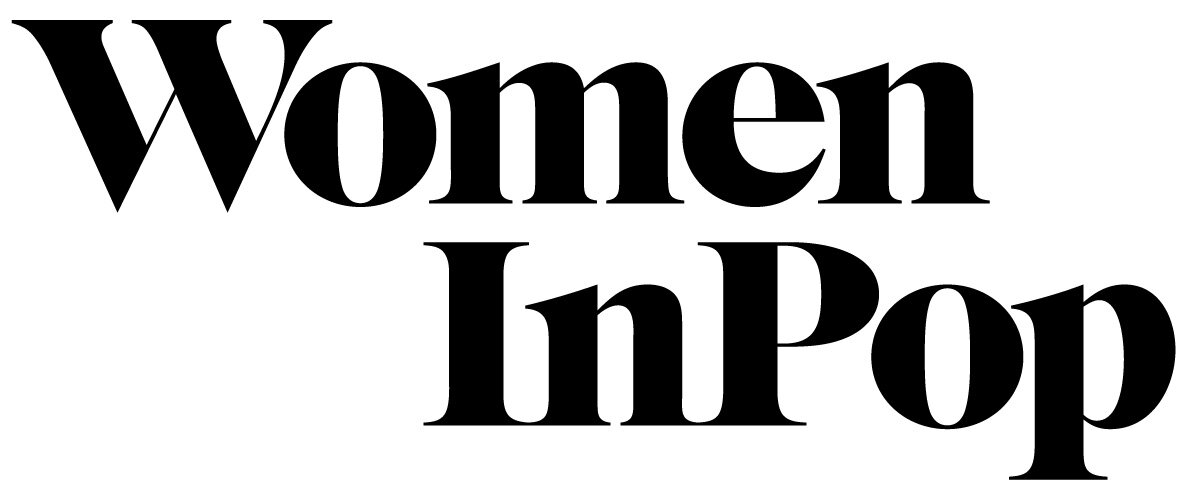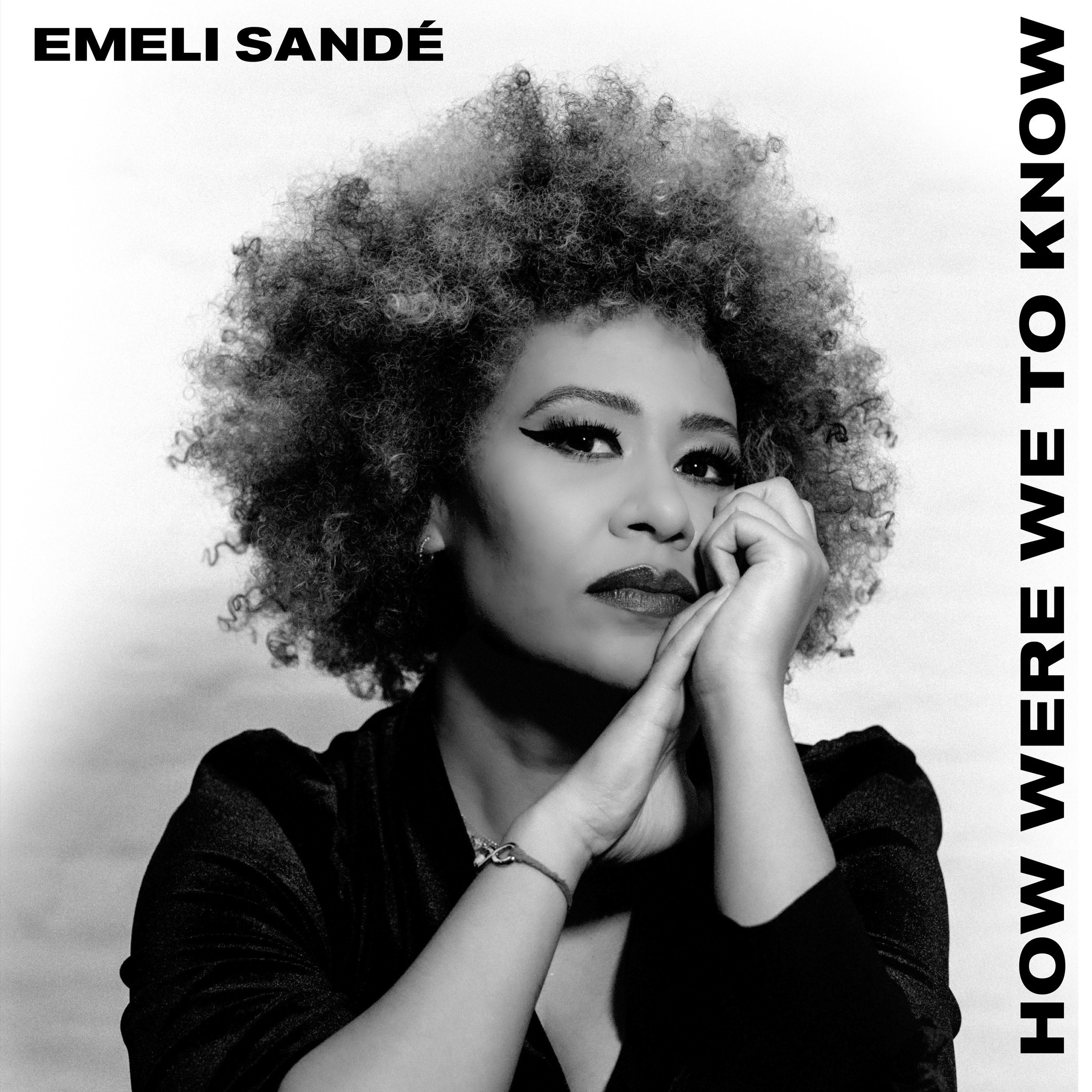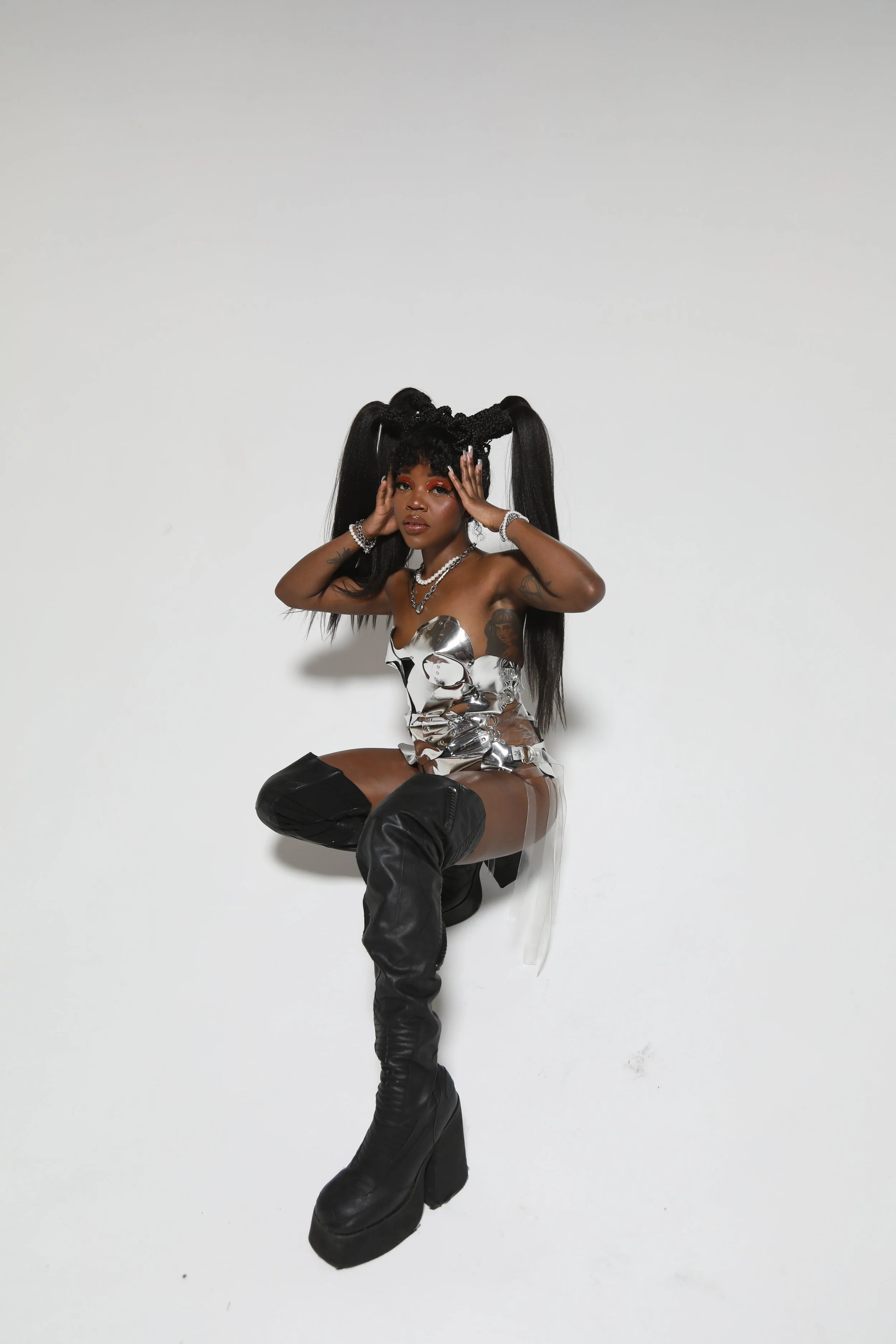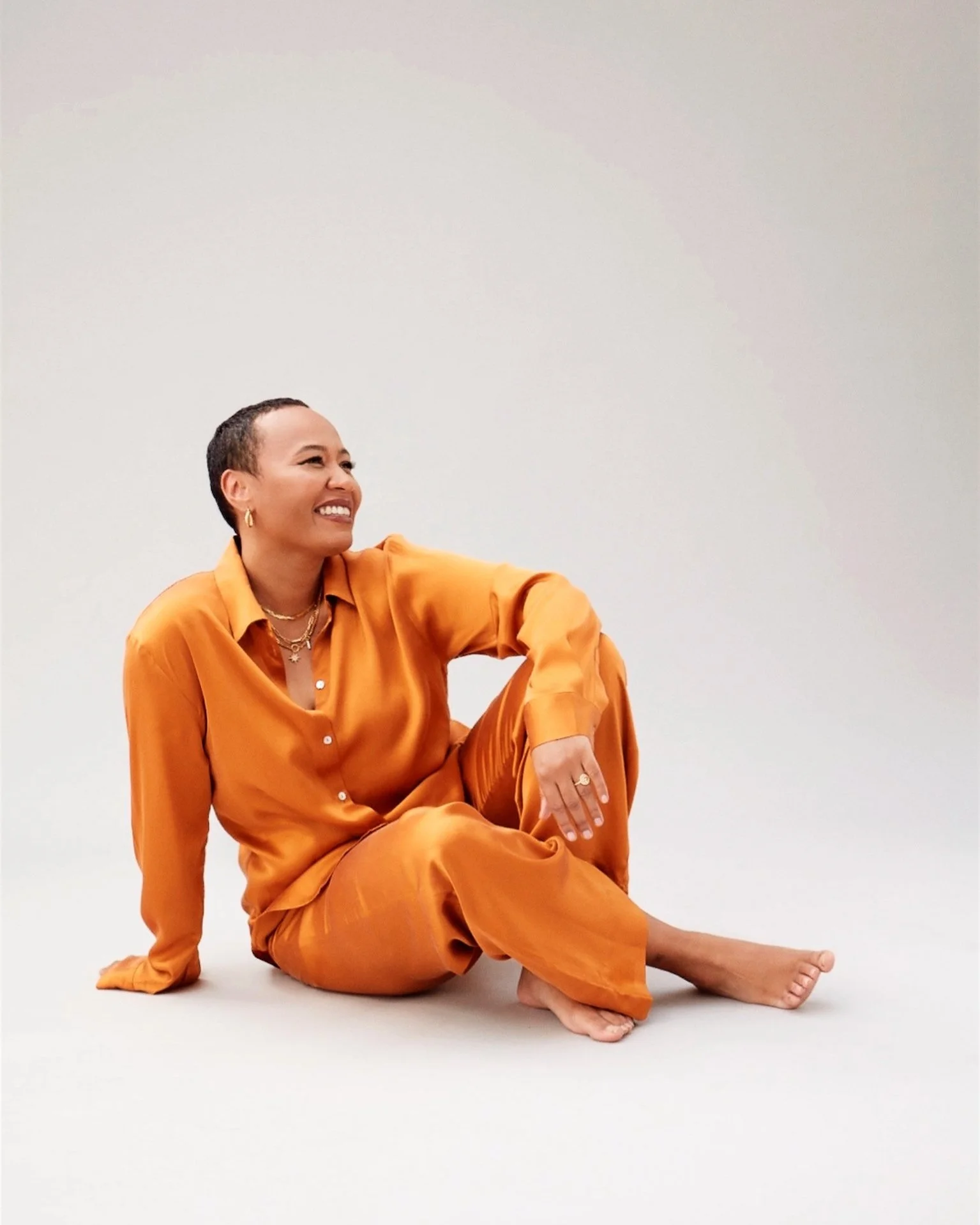INTERVIEW: Emeli Sandé on her new album 'How Were We To Know': "There’s different layers of who I am, but when it comes to music, I want to put my soul into it."
Words & interview: Jett Tattersall
Image: Giulia Savorelli
Off the back of lending her talent to Chipmunk's 2009 'Diamond Rings', Emeli Sandé was swiftly catapulted into the limelight with subsequent songs such as 2011's debut single 'Heaven' and global favourites 'Next To Me' and her team-up with Labrinth, 'Beneath Your Beautiful'.
Today, she is back with her fifth studio album, How Were We To Know, a collection of songs, anthems and mantras which, at its motivational core, explores the risks and rewards of love. The album covers heartbreak, grief, and joy, reflecting on moving on from a failed relationship and the exhilaration of falling in love. It is a relatable and emotionally rich exploration of love.
"Once you've been hurt, it's very hard to pick up the pieces again and allow yourself to be vulnerable", Sandé says. "So I think these songs explore the bravery of love, and loving others but also yourself".
The latest single, 'My Boy Likes To Party', reveals Sandé’s new side with its blend of electro-pop and trap beats, drawing energy from personal experience. 'All This Love' opens with a smattering of thuds and pulses that build into a hook-filled track, complete with uplifting gospel harmonies as Sandé contemplates channelling an abundance of love when it goes unreciprocated. Not to overlook the power of self-love, 'True Colours' shines in its celebration, 'Nothing We Can't Handle' is a bare-bones anthem of unity in the face of challenge. While the perfect closer, more of a plea to her listeners, 'Love' showcases Sandé’s exceptional vocal range backed by stripped-back instrumentation.
"These are tales from a hopeless romantic. I'm very romantic", Sandé admits, "and it gets me in trouble sometimes!"
How Were We To Know is an album that explores different forms of love through soaring vocals, saxophone solos, synthesisers, and piano. It's a record about self-affirmation, knowing yourself, and being proud of who you are. Emeli Sandé's exceptional talent is on full display as she transforms moments into unique musical experiences, delivering spine-tingling vocals and freely experimenting with diverse instrumentals. We recently caught up with Sandé to learn more about the album's creation.
Hi Emeli, so lovely to chat to you again. Can I just start with how good your new album How Were We To Know is. It is so beautiful and joyous and it's exactly what we need, because the world is going to shit. Talk to me about it.
Thank you. If I look at the oldest songs to the newest, it took about eight years to make if it's all there together. It talks about the last decade, and I'm really happy that the songs have had time to marinate. I started the album with a question of, ‘what am I supposed to do with all of this love?’ and then I want the listener to really hear the journey of finally getting to the final song of love, and that submission into love. I just tried to be as vulnerable as I could, and put my heart fully on my sleeve, put as much passion into it as possible. I'm really happy how it turned out and excited to release it.
Well, it's definitely full of passion and your heart is a big, glittery cannon of things because it is just fanfare and trumpets. I'm so glad that the single ‘All This Love’ opens the album, it is such a great song and I just love how it builds. Talk to me about this track because this is absolutely a stupendous way to start an album.
Thank you. I wrote it with a production duo called Mac and Phil, who I worked a lot with on my second album. We were supposed to be working on a different song actually, ‘True Colours’, and I said, ‘oh, I’ve started this song at home’. I played them the skeleton of it, and I love working with them because their production is really quirky and they really listen to me, and it’s something that we could co produce together. It's quite an unusual chorus, it just says ‘what I'm supposed to do with all this love’ and it just repeats, but I really wanted this element of explosion, that you're holding something in and suddenly you let it out. I wanted to represent that in the music. I just wanted to be honest, if you have this love, but nowhere to put it, it can either become a very destructive energy, or you find somewhere to place it that can be a bit more healthy.
It’s such a lovely sentiment, because we never consider that when something ends, what am I going to do with all this love? We're supposed to just dive into the sadness and the bitterness and the darker feelings of it. You just seem to always celebrate humanity with your work, you never wallow, and I think that's a hard thing to do, particularly as the world is getting more and more painfully depressing. Do you have to dig deep to get that optimism and then turn it into a beautiful song, do you sometimes find it hard to write such uplifting music?
Well, strangely, sometimes when I get really depressed about the world or I feel that heaviness, it kind of gives me more incentive to write something that could uplift people, but I think it's doing it in a way that's realistic about where we are. The hardest thing sometimes to do is write a happy song that is genuine and doesn’t come across corny, it’s so important to lace the reality with the hope and then I think the hope has more weight. How the world is and the darkness that we are experiencing, it does give me incentive to put light into it. Before music, I was studying to be a doctor and when I flipped to music and really went for it, I wanted to make sure there was a healing element and there was a point of doing my music beyond me just expressing myself. And that's what keeps me motivated to do it, really. But it can be hard, and that’s why I really love Frida Kahlo, for example, she first showed me that you can transmute pain into beauty and strength. The more you expose yourself to the ugliness, your vulnerabilities, your weaknesses, your pain, the more strength you can give others. And if you can really take that massive flip and learn how to do that through your art, that's when you start to feel a bit more accomplished.
Absolutely, and your music has always come from a place of ‘this is why we need to feel better’, while still acknowledging the darkness of what could have possibly inspired it initially. It has so much more weight to it. You’ve got such a diverse audience, what what do you think is that hook that brings in such a wide range of listeners? Do you think it is that element of going ‘let's be honest, but hope for the best’?
I think there's so many people out there that do still have hope. The cynicism of the world hasn't quite fully drowned them out. We're all trying to find one another, to find people that still believe there is hope for humanity, and to find strength in numbers. So I do feel that it's finding those people that still have that hope, that’s why I really tried to be as honest as possible in my lyric and get to the human part of me. There’s different layers of who I am, I’m a woman, I'm black and there's these layers that you can put in your identity, but when it comes to music, I want to put my soul into it. So I feel so lucky when I look at my crowds, people from different races, countries ages, there's such a wide range of people and I want my pure soul to be in the music and that's what makes music so beautiful. It transcends everything, and you just have this collection of souls for a night. So I guess that's it. Also, I've never really been boxed into a genre. I've always tried different things - I've done hip hop, drum and bass, jazz, pop - and tried to keep myself throughout it. So I think having those different genres probably helped bring in different types of people as well.
When your career started, it was still a world that was very attached to people staying in their lanes with regards to genre. I remember when you shifted genres, it was this shock, but everyone then just followed suit. And now new artists today, it's a strange concept for them to think that they couldn't experiment with something else.
I love it. That was a big ambition of mine with the second album, there's a lot of pressure to write that. I kept being told ‘that's not an Emeli Sandé song, that one is’ and that frustrated me because I was like, ‘well, I wrote it, so it surely is me!’ I hated that box and I thought I never want to repeat myself, that would make any artist just feel stagnant and artistically dead. So for me, I always want to keep surprising people and surprise myself, keep pushing myself out of my comfort zone. But it took guts and it took a lot of resistance to do that on the second album, but it was so important for me because if I tried to repeat the first album, it would have put me in a box for more of my career. Whereas that shift on the second album was so important, and for a lot of people, the second album was their favourite strangely. It wasn't as commercially successful, but I think artistically, people got to know me a lot deeper.
Do you feel that for yourself and other artists, if you can withstand those comments when making the second album, and stick to the album that you want to make, that even though it may not be a commercial success, it gives you more confidence, because it resonates so much stronger with the fans?
Yes, exactly. And it was a lot more spiritual, it was a difficult time in my life. So some people when they listened to it, they find it depressing, but for me, the deeper you go, the more the hope at the end matters. It was an important move for me and In the long run, it's allowed me so much more artistic freedom.
All your songs are instantly recognisable as Emeli Sandé songs because you've got this presence to your music. This album is just such a soundscape, and it’s not just the choirs it feels like such a collaboration, like a circle of people around you and it's so beautiful. In that, where were you pushing yourself to with this album? Where was the comfort zone that you were pushing yourself out of?
Definitely vocally, I really wanted to push myself and explore my voice. Even with ‘How Were We To Know’ in that chorus, it’s kind of more of a wolf cry. I've been listening to so many different genres like opera and a lot of jazz as well. The main thing jazz has taught me is that even with a subtle approach vocally, you can reach depths of emotion. It doesn't always have to be this high energy vocal, but then likewise, sometimes you just have to go there like ‘All This Love’, you want that explosion, you have to go there. Listening to a lot of symphonic classical music has inspired me too, they've got everything going on. There’s so much but it's just so beautifully arranged and the power and passion you can express. Often with pop music we have a bit of a ceiling, you know, you’ve got three minutes, that has to repeat, and that has to happen. So I really wanted to see - can I get that level of passion with what I can use strings choirs, my voice the lyric? Can I reach that intensity? And you know, why not? A lot of people maybe shy away from going like that, music has become a lot cooler in a way than when I grew up. I listened to Celine Dion and she would just go for it, and Whitney would go for it and this crazy, visceral passion was always there. So I just wanted to get rid of I'm not trying to be cool, I'm just trying to express myself and really give it all.
Yeah, there's coolness in the not being cool club! When you have an artist such as yourself or Celine or Whitney, when you know they can belt it, it's almost even more interesting to hear the quiet moments, the pitter patter. Speaking of your incredible voice and putting it out there, you are doing some gigs around London at the moment. Talk to me about this.
It’s just me at the piano so there's nerves that come with just being out there by yourself, but there's also this incredible feeling of freedom. I only started doing these type of shows last year, and my confidence has definitely grown in doing them but it's the stage of the songwriting or the performance that people don't usually get to see. Usually people hear the song when it's fully polished, produced but I feel like my true essence is at the piano when those songs start appearing. And that's the reason I'm still here. That's what gets me excited. So I thought if I really want to show people who I am, and show people what these songs are really about, I need to just strip it all back. The reception I've had, and the connection from these shows has just been something I've never experienced before in my career. I'm excited to now be able to sing these new songs because I've been waiting a long time to do so.
That’s amazing, and I imagine a lot of your fans have come to you for those huge pop numbers, so to suddenly hear them in this different scenario, it’s incredibly personal and I imagine the pressure is on for you as well.
Yeah, it's high pressure, but I do think I'm someone that works well under pressure. Well, hopefully, fingers crossed touch wood! Ever since I was a kid, if an exam’s on, that's when my brain is going to suddenly switch on. Getting on stage is the hard part, but once I'm there, I do enjoy the intensity of it all and the adrenaline and learning how to channel that energy.
Lastly, before I leave you, obviously, we have the album How Were We To Know out now, and it's going to be making people’s faces hurt from singing and smiling and really changing their perception on love. What else is coming up for you?
The shows, and then I might have a few shows next year at Ronnie Scott's in Soho in London, which I'm excited for some. I’d love to tour the album at some point but that isn't in the diary yet. I've started looking at different compositions, composing music in different ways, potentially releasing an album just vocal and piano because I think that'd be really cool. I feel with this album I've said everything I really want to say in that pop realm. It really feels like it’s an album sums up my life in pop in a way. I really want to just try different genres moving forward.
How Were We To Know is out now via Chrysalis Records. You can buy and stream here.
To keep up with all things Emeli Sandé you can follow her on Instagram, Facebook, TikTok and Twitter.







